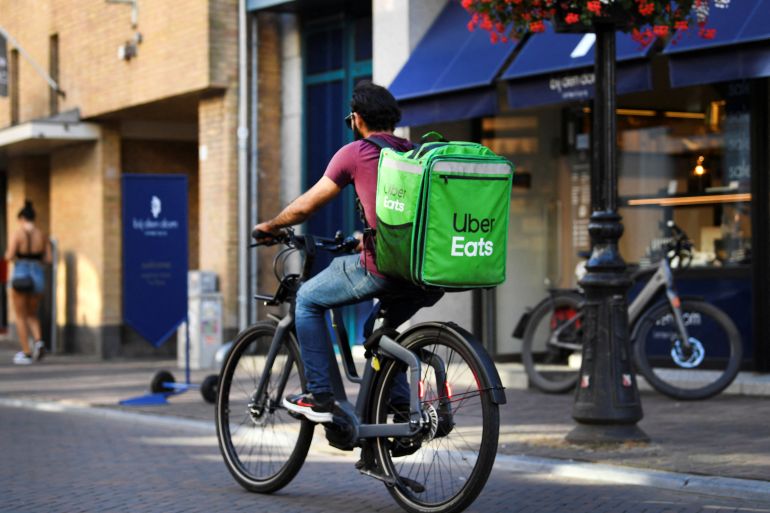EU countries endorse diluted draft rules on gig economy workers’ rights
Revised text scraps a set of criteria proposed by the European Commission to determine if an online company is an employer.

European Union countries have agreed regulations determining when so-called gig economy workers at online platforms such as Uber and Deliveroo should be treated as employees after weeks of wrangling over the draft text.
The draft rules, first proposed by the European Commission in 2021, are aimed at an estimated 28 million workers in the EU, whose numbers are forecast to rise to 43 million next year.
Keep reading
list of 4 itemsClimate change threatens EU with mass deaths and huge costs: Report
18-hour work days and no savings: An Uber driver in Delhi
India’s Urban Company revolutionised gig work for women. Then it bled them
“Ministers just approved the compromise text on the Platform Work Directive (#PWD). This will improve the rights and conditions of more than 28.5 million Europeans working in the #PlatformWork economy,” Belgium, the current holder of the rotating EU presidency, said on the social media platform X on Monday.
EU negotiators finalised a previous deal on the rules in December, but some countries – including France, Germany, Estonia and Greece – were not happy with the draft agreement.
That text said if workers meet two out of five criteria, the presumption would be that they are not independent contractors but employees, giving them access to benefits like sick pay.
In February, member states agreed on another text, but critics said it was watered down.
The revised text scrapped the set of criteria proposed by the commission to determine if an online company is an employer.
Instead, national law, collective agreements and case law would dictate whether a worker is an employee, which in effect would maintain the status quo.
The burden of proof would be on companies to show that gig workers are not employees.

The Platform Work Directive would classify workers on gig-economy apps as employees in cases where platforms control factors such as how much workers are paid or their working hours or electronically supervise their performance.
The draft rules ban the use of automated monitoring or decision-making systems to process certain types of personal data of people performing platform work, such as biometric data or their emotional or psychological state.
The European Parliament is to vote on the agreement next month.
EU votes to ‘maintain the status quo’: Uber
Uber said Monday’s approval would keep the status quo in place.
“EU countries have voted to maintain the status quo today with platform worker status continuing to be decided country to country and court to court,” an Uber spokesperson said.
“Uber now calls on EU countries to introduce national laws that give platform workers the protections they deserve while maintaining the independence they prefer.”